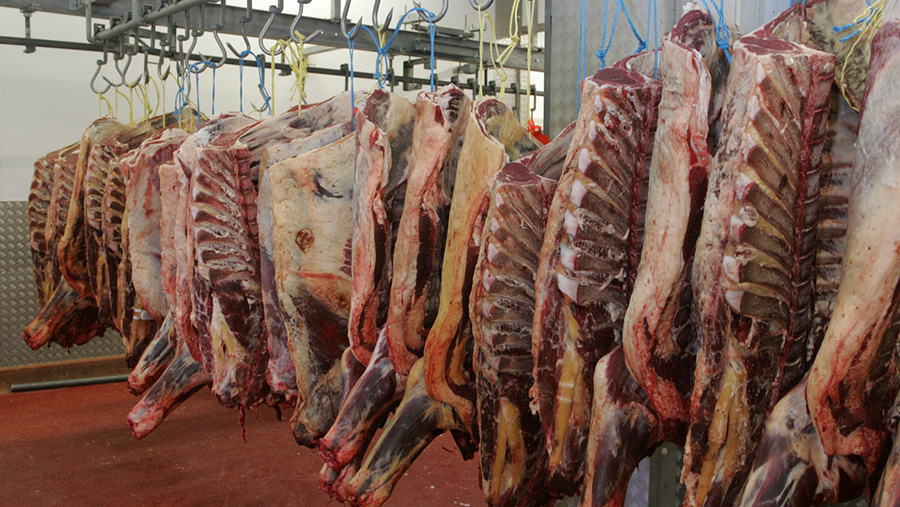Probe into ‘angel dust’ found in cattle
 © Tim Scrivener
© Tim Scrivener The Department of Agriculture in Ireland is investigating an alleged case of the use of clenbuterol in cattle.
The illegal growth promoter, known as “angel dust”, was found in a cow at a meat plant, according to a report in The Sunday Times.
One animal tested positive for growth hormone at the ABP meat processing plant in Clones, Co Monaghan, said the report.
See also: Read the latest livestock farming news
The positive test was found in a random sample carried out by the Irish agriculture department’s on-farm national residues control plan (NRCP), a monitoring plan for cattle, sheep, pigs, horses and poultry.
What is clenbuterol?
The use of clenbuterol, a growth-promoting drug in the beta-agonist class of compounds, in livestock farming is banned across the EU.
Its illegal use, especially in shows, is linked to its ability to induce weight gain and a greater proportion of muscle to fat.
The positive test of clenbuterol is the first in Irish cattle since 2011 when a single isolated incidence was uncovered during sampling.
Following the discovery of the positive drug test, investigators seized clenbuterol at a farm in the county.
A statement from Ireland’s Department of Agriculture confirmed: “The investigation follows from a positive result for one animal in a random sample taken as part of the National Residue Control Programme.
“The department has placed all animals on the farm under restriction pending the completion of the investigation.
“The Food Safety Authority of Ireland is fully aware of the case and has concluded that there is no risk to public health from meat that is on the market.”
A spokesman for ABP confirmed there was a potential issue with a single animal slaughtered in its Clones factory.
The spokesman added: “In situations like this with limited details of the issue, ABP will take guidance and direction from the relevant authorities who have informed the company that there was not a food safety risk associated with meat from this animal.”
The Food Safety Authority of Ireland (FSAI) confirmed the detection of the drug in a cow, but stressed there was “no risk to public health from meat that is on the market”.
